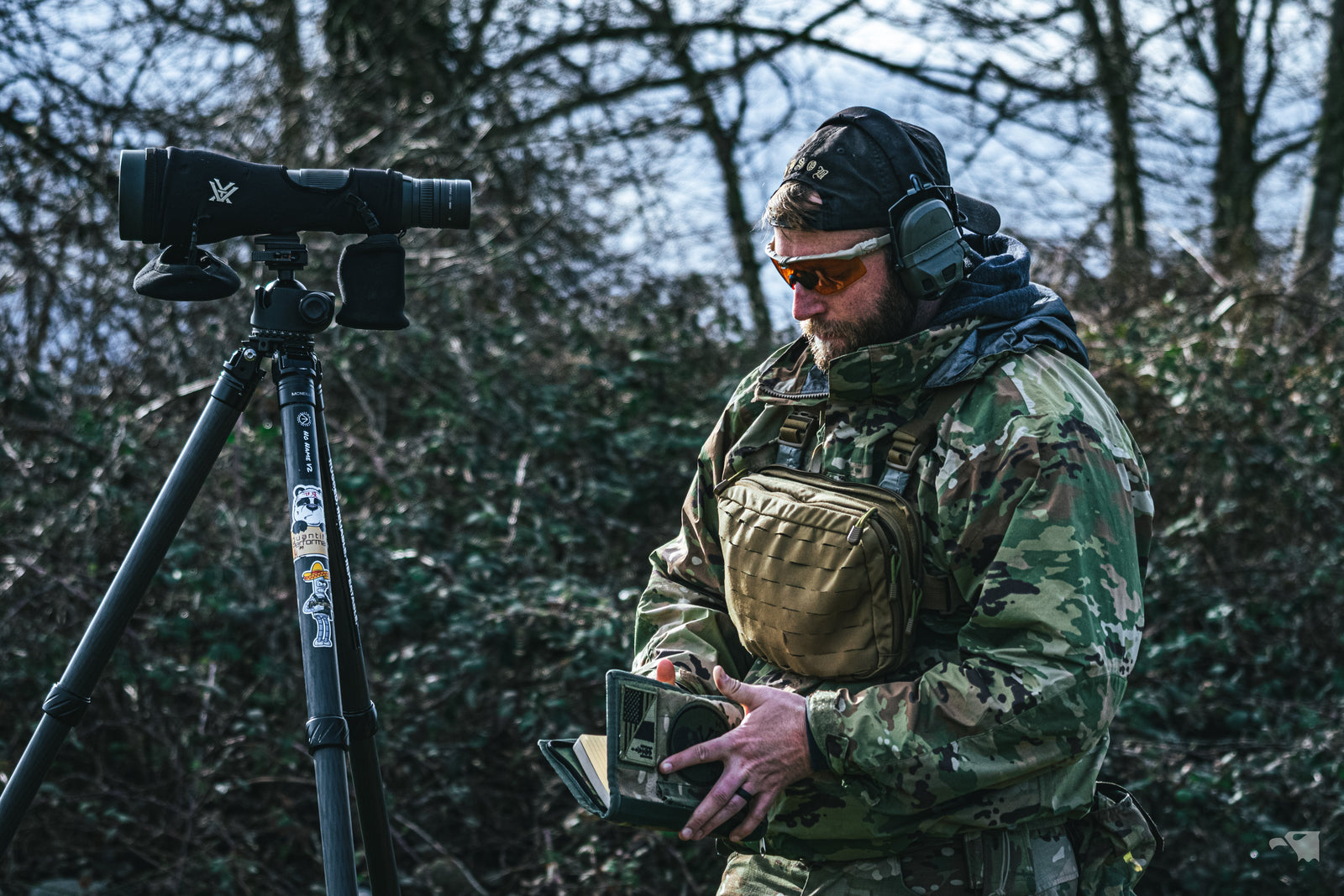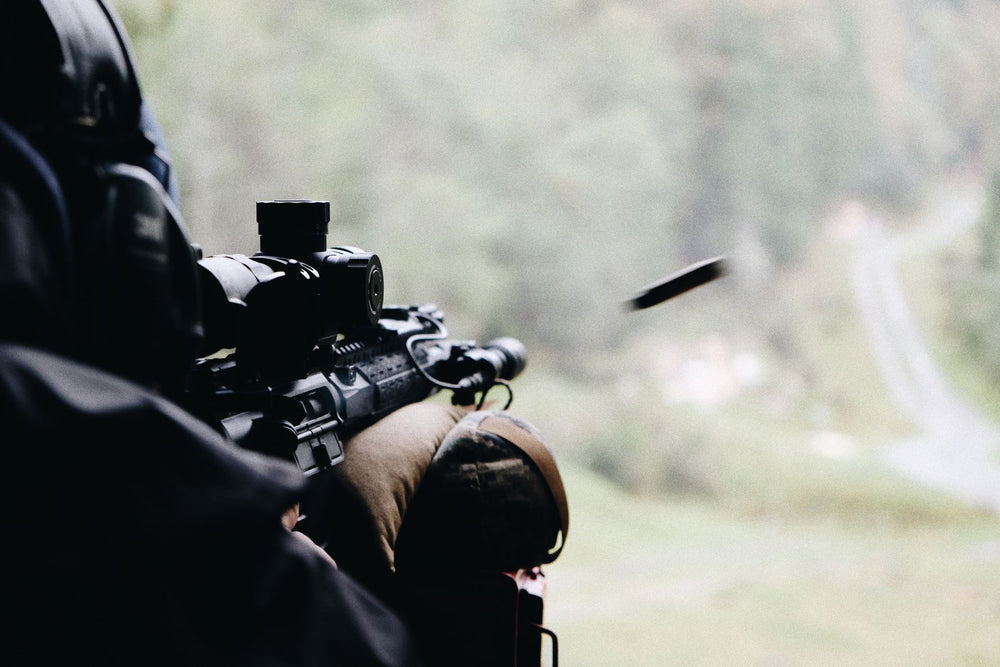The Best Rifle

I’ve been an avid AR builder for about a decade at the time of writing this article. While it’s not my profession, I’ve had opportunity to learn from about a half dozen other professional builders and build hundreds of guns for folks in my local shooting communities. There are an overwhelming number of options to pick from when building an AR. At some point in the build, I see the same analysis paralysis from each client I work with. I have felt this myself, but I have had the privilege of having handled most common brands and parts out there at some point; most of my clients have handled maybe an AR or two their entire lives, if at all. Despite this, they often have strong opinions about what they want, or even worse, need (a testament to the availability of information and first-hand accounts). I am beyond thankful that the door is wide open to newcomers, and that there are a massive number of legitimate SMEs (Subject Matter Experts) putting out good content, but I also hope I can de-clutter some of the first steps newcomers take into the world of the highly configurable AR.
Before you make a concrete decision about anything, it’s extremely wise to seek out mentorship. Personal mentorship is best when possible. You can meet a mentor through existing friends, at matches or classes, or at the local range if you’re courageous in making new relationships (remember: shooting is a team sport). Make sure that the mentor you choose is someone you respect both in shooting, and morally, socially, and ethically. Guard yourself from becoming a complete disciple of your mentor; allow for that person’s perspectives on a certain topic to be wrong or nuanced incorrectly. This will guard you from the relationship being destroyed in the likely event they’re wrong about something (which will happen eventually; we’re all on our own journeys regardless of experience-level), and it will also keep you from learning a preference as a law. Finally, be open to your mentorship being limited in time and scope; mentors tend to be highly skilled in a limited amount of topics, and while they’ve spent their entire life gleaning wisdom about those topics, their lessons learned are shared faster than it took to learn them in the first place. It doesn’t mean the friendship with the mentor has to end, just that you should look to others to expand the points of view you consume over your life (if you find a good mentor, they are doing the same with their own teachers).
In lieu of personal relationships, or preferably in addition to them, seek wisdom from forums like r/ar15, r/nfa or r/longrange on Reddit, or dedicated forums like ar15.com or snipershide.com. These can sometimes be tricky because anyone of any experience level can influence you there, but it is also a place where manufacturers of all types of shooting technologies are reaching out and giving you information directly. Additionally, you can reach out to the mods for recommended members who might be best about a topic (I have especially had success with this on r/ar15). My general feeling about these forums is that they’re the fastest way to get good information if you’re on the lookout for the folks who are there only to pick a fight or beat their chest about the “best” take on a given issue. Remember the Dunning-Kreuger effect; your most knowledgeable posters will generally share an opinion winsomely, they will know that their preferred way is not the only way, and will be able to give you the positives and negatives of their and other positions. As a result, if you are a newbie, prepare your hunt for knowledge to leave you with a great option, and not always the best (“best” is almost always a fairytale). Avoid people who spit on nuance and believe the world is full of black and white options.
Once you’ve consulted some folks who know better and have helped you figure out your budget, the amount of time/money you’ll likely have in a given period to train dry or live, you’re ready to build your tool. My biggest advice to folks once they start buying and laser-focusing on why it makes sense to spend an extra $40 on a bolt catch that has an additional 1/8” of surface area, I try top push the message that for a first build, the more boring it is, the better it is (probably). Most unique parts, optics, and other gadgets out there were created to solve a specific problem either a competitor or a barrel-chested freedom fighter identified in their highly specialized context. You haven’t explored those contexts and might NEVER explore them (and that is ok!; this article is for the prepared citizen). As a result, I recommend only upgrading a part once have 1) faced the problem personally and 2) can quantify the problem being solved. Always bounce the need (usually want if we’re being honest) off one of those mentors we’ve involved. I could build more than a few gucci rifles with the money I’ve wasted on parts that seemed like a good idea, but didn’t apply to my use case.
Finally, you’ve got your gun and you want to explore it’s capabilities! The range is a great place to begin to build confidence in your setup, recover from your first malfunction, tune your suppressor, figure out what you need to do to push your platform another 100 yds, and learn safe habits when handling and maneuvering your rifle. However, it’s not the place where you will probably learn the difference between being good and great with your rifle. While a mentor can help with that, I believe that classes and competitions are the best place for this. Even if you have a timer, carboard targets and a notepad to quantify your own performance (remember, the clock and the cardboard never lie), they don’t concretely quantify what is possible. At every match, there will be at least a shooter or two there to make you feel really terrible about where you’re at and hopeful about where you could be with enough work. However, as this article is about building the platform, these venues are amazing for putting you in shooting situations you would have never thought about yourself, and you’ll get to see what equipment or techniques those amazing shooters use to accomplish the mission of that stage. Compete with the rifle you have (within reason; don’t show up to a Quantified Performance match with a red dot and no magnification). Courageously suck in front of strangers. Journal the feelings and experiences of failure and success out as the comp day goes (I jot down some thoughts after every stage if I can). This goes back to what I mentioned about being socially courageous; approach those shooters after the match, share the challenges you faced and wrote down with them, and ask for advice about what they would do or use to overcome that problem. It should give you either an answer to your problem, or the language necessary to ask your mentor or hit the internet with your questions.
The more I work through shooting, I discover that I’m not as clever as I imagine myself to be, whether that is in relationship to my abilities, or the components I choose to build my gun with. Shooting is at it’s core a martial art, and just like you should never believe because you have the biggest sword or strongest kick you can’t be beat, a great rifle will never guarantee your hit factor. Confident humility in all circumstances will reduce the chance a problem becomes insurmountable, and rifle that is built with care (and at the pace you have the time to learn about it’s strengths and weaknesses) is a rifle that will never hold you back, but enhance what you know how to do at that point in time. It’s not uncommon for new shooters to come to me in panic about needing the most capable rifle now because of some election, or some law, or some war, or how much some gas station is charging at the pump. When it comes to capabilities on a rifle, rushing to build is rushing to fail, but I believe if you respect the process and incorporate the tenants in this article, and the other great advice there about getting into the platform, you will be right where you should be every step of the journey with equipment that compliments your capabilities.
Author: Brian McNeilly





Dejar un comentario